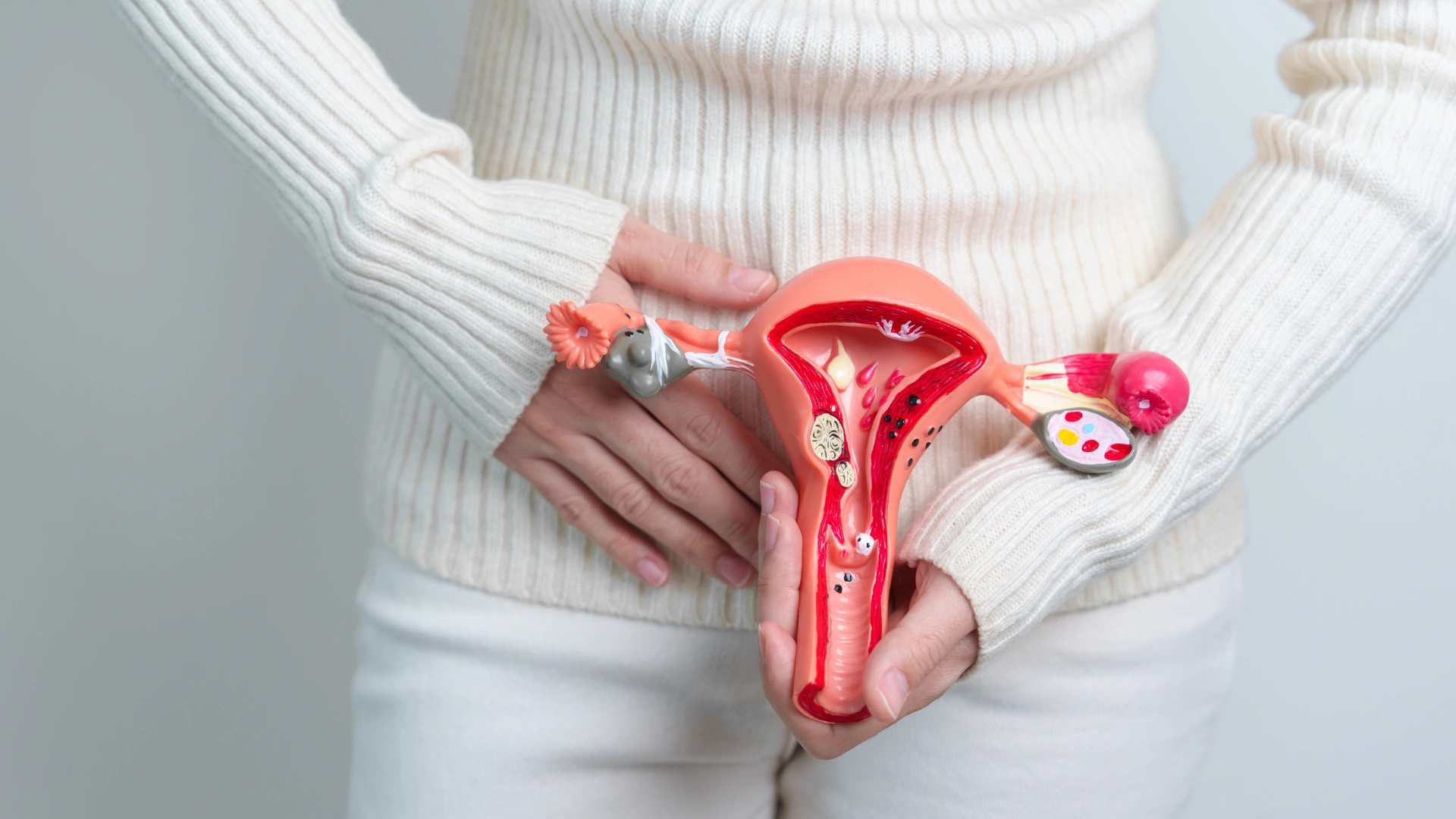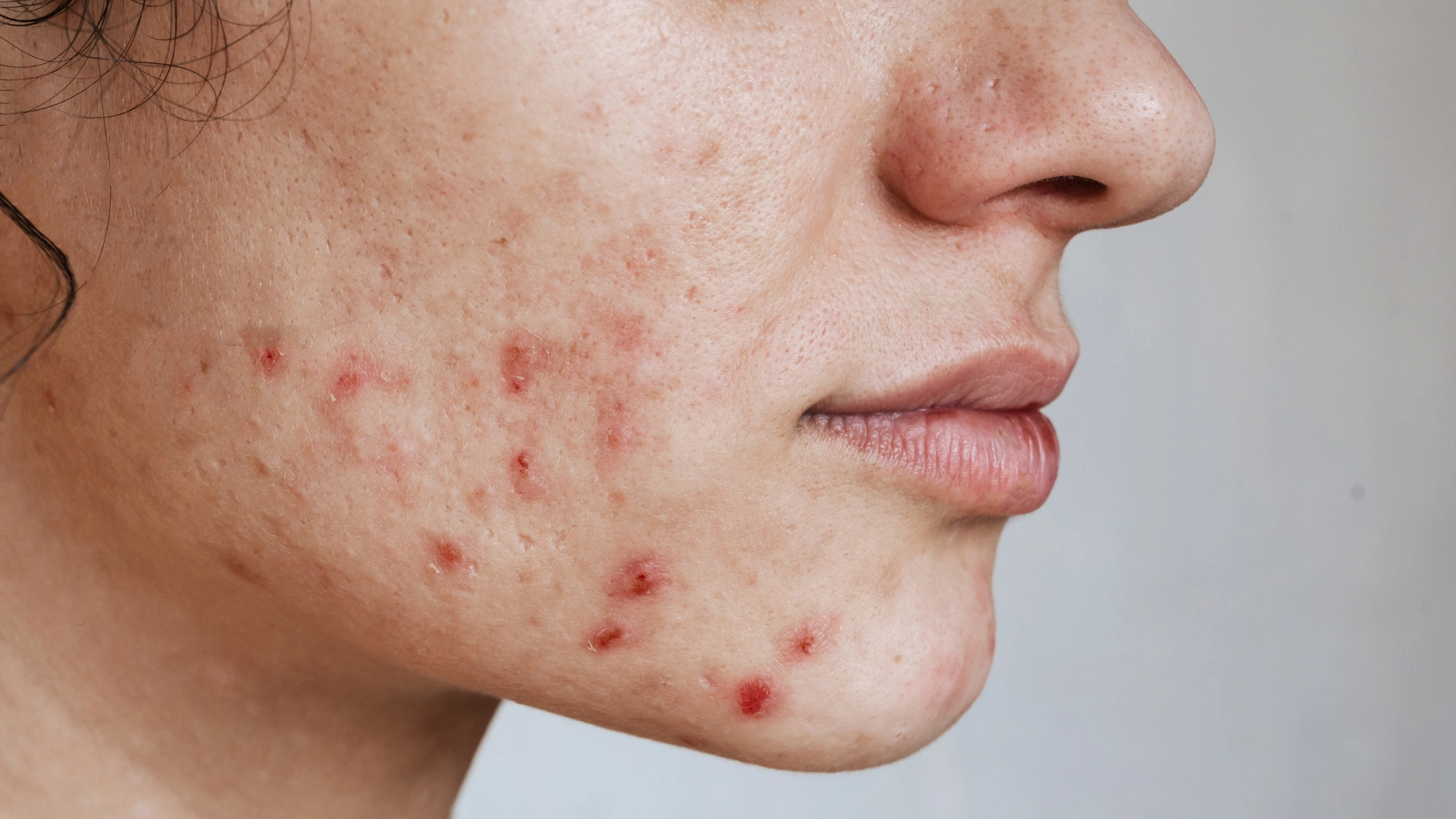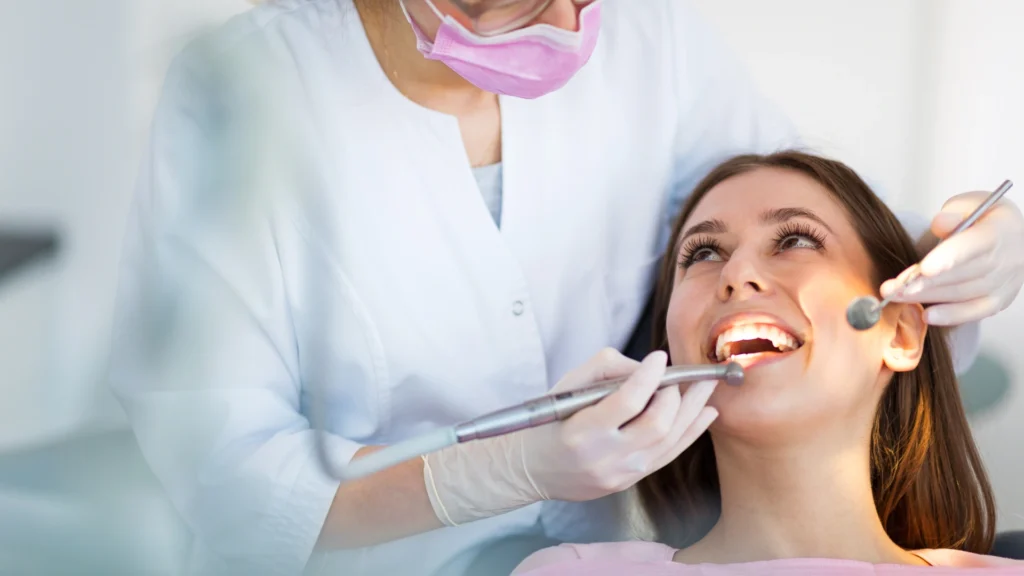
For many, oral health care goes beyond traditional dentistry, leading them to explore holistic dentistry, which emphasizes overall well-being. Holistic dentists focus on non-toxic, biocompatible materials and take a whole-body approach to dental care, treating patients with a personalized and preventive mindset. This treatment philosophy has gained popularity as more individuals become aware of the potential risks of traditional dental practices, such as exposure to mercury and harmful chemicals.
In this article, you will learn about what a holistic dentist is, their treatments, the differences between holistic and traditional dentistry, and the benefits of choosing this alternative approach. You will also discover how to find a qualified holistic dentist, the potential risks and controversies surrounding holistic dentistry, and whether these treatments are safe and affordable.
What Is a Holistic Dentist?
A holistic dentist focuses on the whole body rather than just the teeth and gums. The philosophy of holistic dentistry is rooted in the belief that oral health is closely connected to overall health and that treating dental issues should address symptoms and promote the body’s natural healing processes. Holistic dentists use non-toxic, biocompatible materials and are cautious about the potential side effects of treatments, aiming to minimize the use of harmful substances.
Holistic dentistry often involves looking beyond the mouth and teeth to understand a patient’s general well-being, lifestyle, and nutrition. This approach may also include a range of treatments that focus on prevention and the body’s ability to heal itself. Unlike conventional dentists, holistic dentists may avoid using materials like mercury amalgam fillings, fluoride, and other potentially harmful substances. Instead, they use natural alternatives that align with their philosophy of treating the whole person.
Common Treatments Offered by Holistic Dentists
Holistic dentists offer a range of treatments designed to promote oral health while supporting overall well-being. These treatments are carefully chosen to minimize exposure to harmful chemicals and ensure the materials used are safe for the body. Some common treatments include biocompatible fillings, safe mercury amalgam removal, fluoride-free treatments, nutrition counseling, and ozone therapy. Each of these treatments is aligned with the holistic philosophy of dental care, which emphasizes natural, non-invasive options that support the body’s healing process.
Biocompatible Fillings and Materials
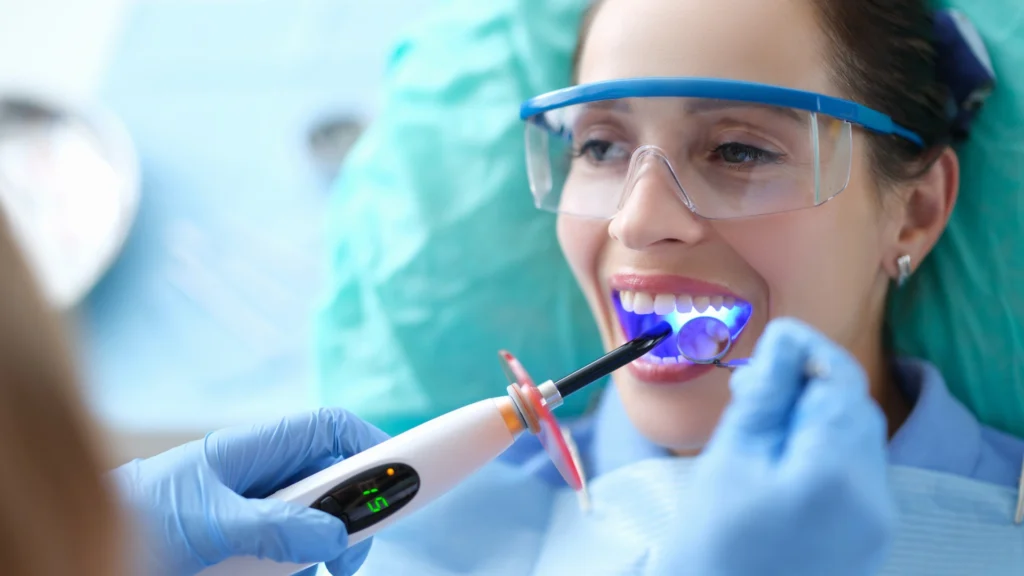
One of the primary treatments holistic dentists use is biocompatible fillings, designed to be safe and non-toxic for the body. These fillings are made from materials that do not release harmful substances into the body, such as BPA (bisphenol-A), which is commonly found in some traditional dental materials. Holistic dentists prefer materials like resin-based composites, which are safe and mimic the natural color of the teeth. These biocompatible fillings are less likely to cause allergies or sensitivities than metal or other traditional filling materials, making them an ideal choice for individuals concerned about chemical exposure.
Safe Mercury Amalgam Removal
Mercury amalgam fillings, commonly known as silver fillings, are a common dental restoration. However, many holistic dentists avoid using them due to concerns about the potential health risks of mercury exposure. To ensure that no mercury vapors are released, holistic dentists take extra precautions when removing them. Specialized techniques, such as rubber dams and air filtration systems, are employed to safely remove these fillings and replace them with safer alternatives, such as biocompatible composite fillings.
Fluoride-Free Treatments
Many holistic dentists choose to avoid fluoride in their treatments due to concerns about its potential health risks, especially in young children. Traditional dentistry often uses fluoride to strengthen tooth enamel and prevent cavities. However, some holistic practitioners believe that excessive fluoride exposure may have adverse effects on the body, such as contributing to dental fluorosis or negatively affecting the thyroid. Instead of fluoride, holistic dentists may recommend natural alternatives like xylitol or remineralizing treatments to help prevent cavities and promote healthy teeth.
Nutrition Counseling for Oral Health
Holistic dentists often integrate nutrition counseling into their practice to promote oral health from the inside out. They believe diet is crucial in maintaining healthy teeth and gums. A nutrient-rich diet can help reduce inflammation, strengthen tooth enamel, and prevent cavities. Holistic dentists may suggest foods high in calcium, vitamin D, and other nutrients essential for oral health while advising against sugary or processed foods that can contribute to tooth decay. They emphasize the importance of a balanced diet as part of an overall approach to preventive care.
Ozone Therapy
Ozone therapy is another treatment option offered by some holistic dentists. Ozone is a highly reactive form of oxygen that can help kill bacteria, viruses, and fungi, making it a powerful tool in treating infections in the mouth. Holistic dentists may use ozone therapy to disinfect areas affected by cavities, gum disease, or other oral infections. Ozone can help promote healing, reduce inflammation, and support the body’s natural defense mechanisms. This treatment is non-invasive and typically does not require the use of antibiotics or other harsh chemicals.
Traditional Dentistry vs. Holistic Dentistry
When comparing traditional dentistry with holistic dentistry, the differences in philosophies, treatments, and materials become quite evident. While traditional dentistry focuses on treating dental issues as isolated problems, holistic dentistry takes a more comprehensive approach by considering the impact of oral health on overall bodily health. The two practices diverge in addressing dental care and the materials and methods used to treat patients.
Philosophies
Traditional dentistry typically follows a more symptom-focused approach, addressing problems like cavities, gum disease, and tooth decay as isolated issues. The focus is on repairing and restoring teeth using widely considered safe and effective materials. While preventive care is emphasized, traditional dentistry views the mouth and teeth as separate from the rest of the body.
In contrast, holistic dentistry operates on the principle that oral health is directly linked to general health. Holistic dentists view the mouth as an integral part of the body and recognize that dental issues can affect overall well-being. They also believe treating dental problems should involve fixing symptoms and addressing the underlying causes, such as nutrition, lifestyle, and environmental factors. They aim to optimize health by taking a more natural, preventive approach focusing on whole-body health.
Treatments
Traditional dentists typically rely on fluoride treatments, root canals, and mercury amalgam fillings, standard procedures in conventional practices. These treatments effectively address symptoms, but they may not always consider the long-term impact on the patient’s overall health. For example, using mercury amalgam fillings in traditional dentistry can expose patients to potentially harmful mercury, which holistic dentists avoid.
Holistic dentists, however, favor treatments that are non-toxic, biocompatible, and minimally invasive. For example, they may use natural remineralizing agents instead of fluoride or recommend dietary changes to promote tooth health. Instead of mercury fillings, holistic dentists prefer composite resin or ceramic materials. They also may avoid procedures like root canals, which they believe could contribute to systemic health problems.
Materials
One key difference between traditional and holistic dentistry is the materials used in dental treatments. Traditional dentistry often relies on materials like metal fillings, crowns, and bridges, which may contain metals such as mercury, silver, and nickel. While these materials are considered durable, there are concerns about their potential health risks, especially with long-term exposure.
Holistic dentistry prioritizes using biocompatible and non-toxic materials free from potentially harmful substances like mercury, BPA, and fluoride. For example, holistic dentists may use resin-based composites or ceramic materials that are both functional and aesthetically pleasing. These materials are safer for patients and better aligned with the holistic approach of supporting the body’s natural healing processes.
Benefits of Choosing a Holistic Dentist

Opting for a holistic dentist offers numerous benefits, particularly for those who prioritize a whole-body health approach and wish to minimize exposure to harmful chemicals. Holistic dentistry is increasingly recognized for its focus on natural, preventative care and its commitment to using materials and treatments that align with the body’s natural healing processes. Here are some of the key benefits of selecting a holistic dentist:
Whole-Body Health Approach
Holistic dentistry views oral health as an integral part of overall well-being. This approach emphasizes the connection between dental health and systemic health, such as the impact of gum disease on heart health or the relationship between oral bacteria and inflammation in the body. By addressing the root causes of dental problems, such as poor nutrition or environmental toxins, holistic dentists aim to improve oral and general health.
Personalized and Preventative Care
Holistic dentists provide personalized treatment plans tailored to their patients’ needs and lifestyles. They focus on preventing dental issues before they occur, often incorporating nutrition counseling, lifestyle changes, and natural therapies into their care plans. This proactive approach reduces the risk of common dental problems like cavities, gum disease, and enamel erosion.
Reduced Exposure to Harmful Chemicals
Traditional dental materials and treatments, such as mercury amalgam fillings and fluoride, can expose patients to potentially harmful substances. Holistic dentists prioritize non-toxic, biocompatible alternatives, such as composite fillings free of BPA and mercury. This reduces the risk of chemical exposure, which can have long-term effects on health.
Focus on Natural and Minimally Invasive Treatments
Holistic dentistry emphasizes natural and minimally invasive procedures, which can be less stressful and more comfortable for patients. Treatments such as ozone therapy, which kills bacteria without antibiotics, and biocompatible fillings are designed to support the body’s natural healing processes. This approach minimizes unnecessary interventions and promotes faster recovery.
Risks and Controversies in Holistic Dentistry
One of the primary concerns is the lack of standardized regulations governing holistic dental practices. This means that some treatments or techniques offered by holistic dentists may not be supported by sufficient scientific evidence. For instance, certain holistic approaches, such as the complete avoidance of fluoride, have sparked debates due to fluoride’s proven ability to reduce cavities when used appropriately. Critics argue that dismissing fluoride entirely could increase the risk of tooth decay, particularly in vulnerable populations like children.
Additionally, holistic dentistry may involve treatments not widely accepted in mainstream dental practices, leading to skepticism from conventional dental professionals. For example, some holistic dentists avoid root canals, citing concerns about potential systemic health risks, even though traditional dentistry considers them safe and effective. This divergence in philosophies can confuse patients trying to make informed decisions. While patient testimonials and alternative studies support many holistic dental treatments, the lack of consensus in the dental community underscores the importance of carefully evaluating the credentials and practices of any holistic dentist.
How to Find a Qualified Holistic Dentist
Finding a qualified holistic dentist requires careful research to ensure they have the proper training, certifications, and experience to provide safe and effective care. Start by looking for dentists with additional training in holistic or biological dentistry. Certifications from organizations like the International Academy of Oral Medicine and Toxicology (IAOMT) or the Holistic Dental Association can indicate that the dentist is committed to evidence-based, non-toxic dental practices. It’s also important to check if they hold a valid dental license in your state or region.
Reading patient reviews and testimonials is another crucial step. Look for feedback that mentions the dentist’s approach, the materials they use, and the quality of care provided. During the first visit, ask specific questions to gauge their expertise, such as how they ensure the safety of mercury amalgam removal, what biocompatible materials they use, and how they integrate overall health considerations into dental care. Trusted directories and professional organizations can also help locate reputable holistic dentists in your area.
Are Holistic Dental Treatments Safe?
Holistic dental treatments are generally considered safe when performed by a qualified and experienced holistic dentist. These treatments prioritize biocompatible materials and natural methods that align with the body’s healing processes, reducing exposure to harmful chemicals like mercury and BPA. For instance, safe mercury amalgam removal minimizes the risk of mercury vapor exposure, making the process safer for both patients and practitioners.
However, the safety of some holistic approaches depends on the dentist’s adherence to established protocols and the patient’s individual health needs. For example, avoiding fluoride entirely might not be suitable for everyone, especially individuals at higher risk for cavities. Patients should ensure their holistic dentist bases treatments on sound evidence and personalize care according to their specific oral health conditions.
Is Holistic Dentistry More Expensive?
Holistic dentistry can be more expensive than traditional dentistry, primarily due to specialized materials, personalized treatment plans, and advanced techniques. For example, biocompatible fillings, such as ceramic or composite resin, are often more costly than traditional mercury amalgam fillings. Additionally, procedures like safe mercury amalgam removal require specialized equipment, such as air filtration systems, and extra safety measures, which can increase the overall cost of treatment. On average, patients might pay 20%–50% more for holistic dental services than conventional ones.
However, the cost varies significantly depending on the type of treatment, the dentist’s expertise, and the location of the practice. While initial costs may be higher, proponents argue that holistic dentistry can save money in the long run by focusing on prevention and reducing the need for invasive treatments. For instance, nutrition counseling and non-toxic treatments might prevent recurring dental issues, ultimately lowering lifetime dental expenses.
Do Holistic Dentists Use Anesthesia?
Yes, holistic dentists use anesthesia, but they often opt for safer, more natural options than traditional dental practices. Instead of standard anesthetics containing synthetic chemicals, holistic dentists may use biocompatible or preservative-free anesthetic solutions to minimize potential side effects. These options are especially appealing for patients with chemical sensitivities or allergies. Additionally, some holistic dentists incorporate relaxation techniques, such as aromatherapy or acupuncture, to reduce the need for high doses of anesthesia.
In general anesthesia cases, holistic dentists ensure that the anesthetics are as safe and minimally toxic as possible. They may also focus on post-treatment detoxification methods to help the body recover from exposure to anesthetic agents.
How Can I Ensure My Holistic Dentist Is Qualified?
To ensure your holistic dentist is qualified, start by verifying their dental license and certifications. Look for additional training or affiliations with reputable organizations such as the International Academy of Oral Medicine and Toxicology (IAOMT) or the Holistic Dental Association. These memberships demonstrate a commitment to holistic practices and ongoing education.
During your initial consultation, ask specific questions about their training, experience with holistic treatments, and the materials they use. A qualified holistic dentist should be transparent about their approach and able to provide evidence-based recommendations. Reading online reviews and seeking referrals from trusted sources can also help you assess their expertise and patient satisfaction.
Are Holistic Dental Treatments Covered by Insurance?
Holistic dental treatments are not always fully covered by insurance, as many providers consider them alternative or elective. Coverage often depends on the specific procedure and the terms of your dental insurance plan. For example, routine services such as cleanings or fillings may be partially covered, but specialized treatments like ozone therapy or nutrition counseling may not qualify for reimbursement.
Patients should contact their insurance provider to verify what is included in their plan. Some holistic dentists offer payment plans or discounts for uninsured patients. Additionally, flexible spending accounts (FSAs) or health savings accounts (HSAs) can sometimes offset the cost of holistic dental treatments, making them more affordable.
Does Holistic Dentistry Use Digital X-Rays?
Yes, holistic dentists frequently use digital X-rays, as they emit significantly less radiation compared to traditional X-rays. Digital imaging aligns with the holistic philosophy of minimizing exposure to harmful substances and protecting overall health. These X-rays provide high-quality images that help dentists diagnose dental issues accurately while keeping patients safer.
Additionally, digital X-rays are environmentally friendly because they do not require the use of chemicals for film processing. Many holistic dentists also supplement digital X-rays with alternative diagnostic tools, such as infrared imaging or intraoral cameras, to provide a comprehensive evaluation with minimal health risks.
Is It Suitable for Children?
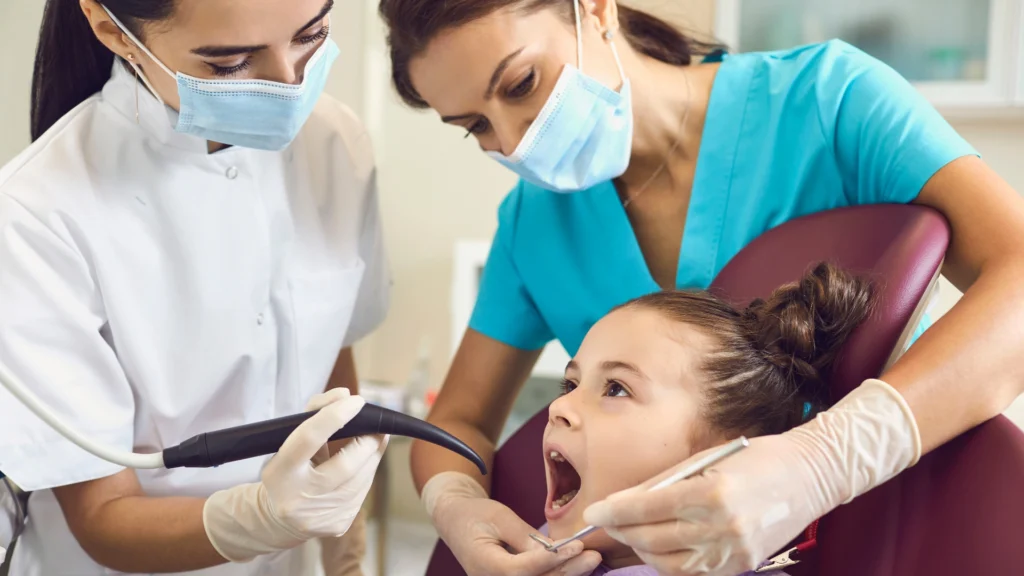
Holistic dentistry is suitable for children and can be a great choice for parents who want a more natural approach to their child’s oral health care. Holistic dentists often focus on preventive care, teaching children the importance of good oral hygiene and healthy dietary habits to reduce the risk of cavities and gum disease. They use non-toxic materials, such as fluoride-free treatments and BPA-free fillings, which are safer for young patients.
Additionally, holistic dentists prioritize minimally invasive procedures, which can be less intimidating for children. Techniques like ozone therapy may be used to treat early-stage cavities without drilling, making the experience more comfortable.
Final Thoughts
Holistic dentistry offers a unique approach to oral health by focusing on the connection between the mouth and the body. It caters to individuals seeking a more comprehensive and mindful approach to dental care by prioritizing non-toxic materials, natural treatments, and a preventive philosophy. While the cost and availability of holistic dental services may vary, many patients find the benefits—such as reduced exposure to harmful substances and personalized care—well worth the investment.
Whether you’re new to holistic dentistry or exploring alternatives to traditional dental practices, understanding a holistic dentist’s principles, treatments, and qualifications is crucial. By taking the time to research and ask the right questions, you can ensure that your dental care aligns with your health goals and values.



